Recently, the medical industry experienced a huge change to pay-per-click advertising on Google relative to what are being considered speculative and experimental medical treatments. In this month’s blog, CEO Ryan Miller discusses what this new policy entails and answers some of the most common questions resulting from this new ban on advertising. Whether you are currently advertising or not, learn what to be aware of in terms of this new policy and how it may affect your search engine rankings in the future.
Video Transcription
Welcome back and Happy New Year, I’m Ryan Miller the Founder and CEO of Etna Interactive. We’re going to talk today from the middle of our office remodel, we’re growing and expanding again so we’re actually going to be talking about, really appropriately, some significant remodeling that Google has been doing in the last three or four months to their Google Ads pay-per-click advertising platform. But, stay with me even if you don’t use today pay-per-click advertising, you’re going to want to understand this if you’re a medical professional, and let me explain why.
Back in September Google implemented a ban on advertising for specific, well what they’re labeling as speculative and experimental medical treatments. They basically stood up on high and cast down a decree that said, ‘We’re going to decide here and going forward which treatments you can promote on our platform now and into the future.’ Here’s what the original announcement looked like.
It suggested that they were simply going to prohibit advertising for specific types of treatments and medical services. The list more explicitly, we’ll bring up on the screen there for you, focused on things like stem cell therapies, non-stem cell based cellular therapies like PRP, home bio-hacking and gene kits, and specifically when we look at these things what it sounded like was a simple prohibition from running ads for that.
But the bottom line, what really happened is we looked at October and November of 2019, the way they actually chose to implement this policy was quite different. What they did is they looked at sites that simply talked about those speculative or experimental medical treatments in a way that was generally promotional and stopped any advertising at all that might have been pointing at that site. So for example, if you were let’s say a facial plastic surgeon, and you were using Google Ads to promote rhinoplasty, not speculative or experimental, but you happen to talk about say PRP for hair restoration on your website. They would suspend your rhinoplasty ads until you remove the discussion, the promotion of PRP for hair loss altogether. That was a very different implementation than what the policy actually suggested and it had a lot of medical professionals very, very concerned. So, we take a step back because it is a complex and confusing topic, I think the easiest way for us to address this right now is to answer the most common questions that we received from our accounts and the industry at large.
The first one is, ‘Why does Google get to make these decisions? Why do they get to decide what I can promote?’ The most honest answer, probably the simplest one as well, is it’s their platform. They own the advertising platform and it’s their decision to make what can and cannot be promoted.
The more complex answer though may have something to do with the widespread and fairly well-publicized harm that has been caused to the public, both in the form of medical harm and the actual death of the patients, who were subjected to really experimental stem cell therapies.
Now I’ll pause here for a second and actually make a pitch, a promotion, for a podcast if you happen to be a podcast listener. Go out and check out Bad Batch, it is fascinating and may help you understand a topic that you hadn’t previously heard coverage which is some of the quite controversial applications of stem cells that have caused human harm in the last couple of years. Google, we believe, had seen this and they saw the rise of promotion on their platform for therapies that were actually harming real people and we believe that they felt that they had to simply take action.
Now, which therapies are actually covered today? I’ll put up a complete list on the screen but they’re largely focused in the areas that I mentioned a moment ago, which are stem cell and non-stem cell based cellular therapies. If you happen to be promoting stem cell therapies that are approved in the U.S. by the FDA, the harvest of bone marrow-based stem cells for the treatment of certain blood disorders, no problem with that at all. Anything that is not yet approved by the FDA or your local certifying body, and is not a generally accepted medical treatment – probably going to be prohibited if it matches one of the items that is on the list on your screen.
We next get asked very often, ‘Is the list set in stone, is it final?’ We don’t think it is. We expect to see this list grow over time as advertisers really try to stretch the boundaries of medical appropriateness and promote therapies that may potentially be a risk to the public.
We get asked ‘How will I know if my ads have actually been suspended?’ Luckily this answer is easy. Don’t worry, Google is going to notify you or the agency that is running your advertising and they’ll provide some explicit direction about what the cause for the suspension is, there are many reasons, the speculative and experimental medical treatments is only one of the reasons you could be suspended. But if it’s that, in order to get reactivated you need to first ensure that you are not advertising any of the listed treatments, and then if that’s the case then you have to make sure that you’re not discussing and promoting those treatments directly on your website.
Now if your site covers PRP we often get the question, ‘If my ads aren’t suspended today do I need to worry?’ And the answer is, unfortunately, yes. What we’ve found is they are implementing this prohibition, this ban uniformly and all at the same time. It appears that they simply don’t have the computing or human resources to detect all of those offenses so it’s possible that you are talking about PRP on your site today, or stem cell treatments on your site today, and advertising other services and have not yet had your ads suspended. We do expect that the suspension will be coming in the next couple of weeks or months so you may as well go ahead and act proactively to prevent that suspension overall.
‘Are any of the other platforms, are they following Google’s lead?’ Well, what we’ve found so far is that the answer is no. Bing, another popular advertising platform doesn’t appear to be following their lead nor do we see any prohibitions popping up on sites like Facebook or Instagram, popular social media platforms where you can also run advertisements.
Now, if your ads are suspended we get asked ‘How long until I can get reactivated?’ Once you’ve removed the references, the promotion of the speculative and experimental medical treatments from your website, it can take just a matter of days to be reactivated once you resubmit your site and ads for consideration to Google.
Now we often get asked ‘Could I still or how do I go about promoting PRP or related services on my site?’ And the answer is no problem. If you’re not going to be running Google Ads feel free to continue to talk about any of those therapies that you deem medically appropriate for your patients even if they appear on the list. But, if you do want to run ads on Google and you want those ads to land on your website you’re going to have to take one of two courses of action. You either need to remove the promotion of speculative and experimental medical treatments from your website. Or you’re going to have to alter the way that you talk about them using euphemistic language to talk around the treatment without explicitly mentioning things like PRP.
Now, in addition to that, we see very often the question that comes back, and this is probably the biggest one that we’re interested in today is, ‘Will this impact my organic search engine rankings?’ Those things that I fight long and hard to earn to gain free visibility on Google search when I’m not participating in the ads. And the answer is, we’re not sure but we’re actively testing it.
And here’s why we’re interested in this particular question: At the end of 2018 Google came out and publicly announced a new set of guidelines for quality that focused on the expertise, the authority, and the trustworthiness of the source and the content. So we know that they care about this very, very much. We also know that as we dive deeper into that guideline, they defined a category of content called, they say YMYL, your money or your life, where the stakes were so high that Google felt that they also needed to set a high bar for quality and content. We’ve put up on the screen there for you a little bit of the background of that particular policy so you don’t have to read the more than one thousand pages of guidelines that govern the idea of how they perceive quality and can zero in on this particular area.
Basically, all it says is that for things like medical topics the stakes are high enough that they simply need to set a higher bar. There’s a great quote that we’ve seen from Search Engine Journal, one of the trusted industry sources for insights in the area of search engine optimization, and it reads like this, ‘If content is created by someone with a great reputation it just makes sense for Google to rank that content higher than from someone with a bad reputation.’
Now if we extrapolate this and take it to the point to say if that content is coming from someone who only talks about, and only promotes approved therapies, well I think it just makes sense that Google might rank that higher than content on websites that are also promoting therapies that are seen as speculative or experimental by Google.
We’ll be following this closely but what it means for you right now is that if you’re running ads on Google you need to be mindful of how and where you promote what they consider to be speculative and experimental medical treatments and ensure that you or a partner is actively watching for that list to evolve so that you’re not caught off guard or by surprise for changes in their policy. Even if you don’t advertise, have a discussion with either your team or your SEO agency partner about whether or not you might want to treat differently those kinds of experimental treatments that you might be interested in covering on your website to ensure that you don’t put at risk your organic search engine rankings.
I realize this is a heady topic and you may have more questions. If you do feel free to email us, call us, post directly to our blog or reach out to us on social media.
Contact Us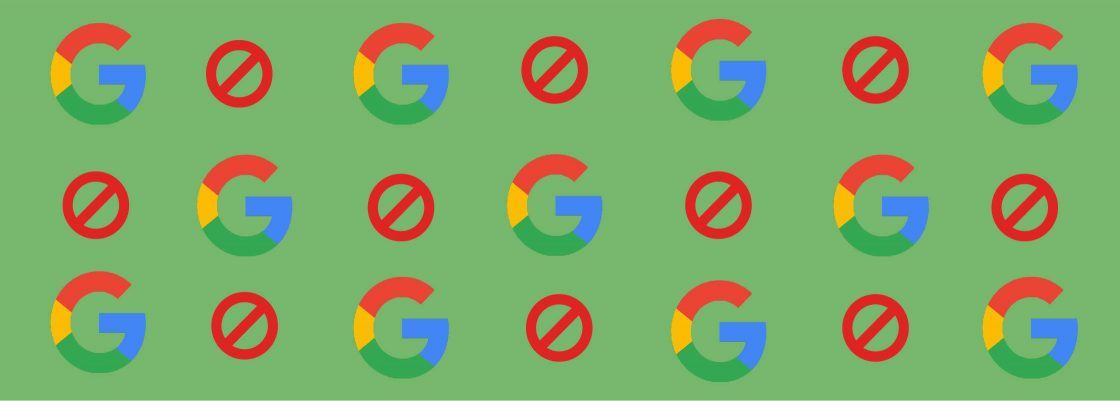

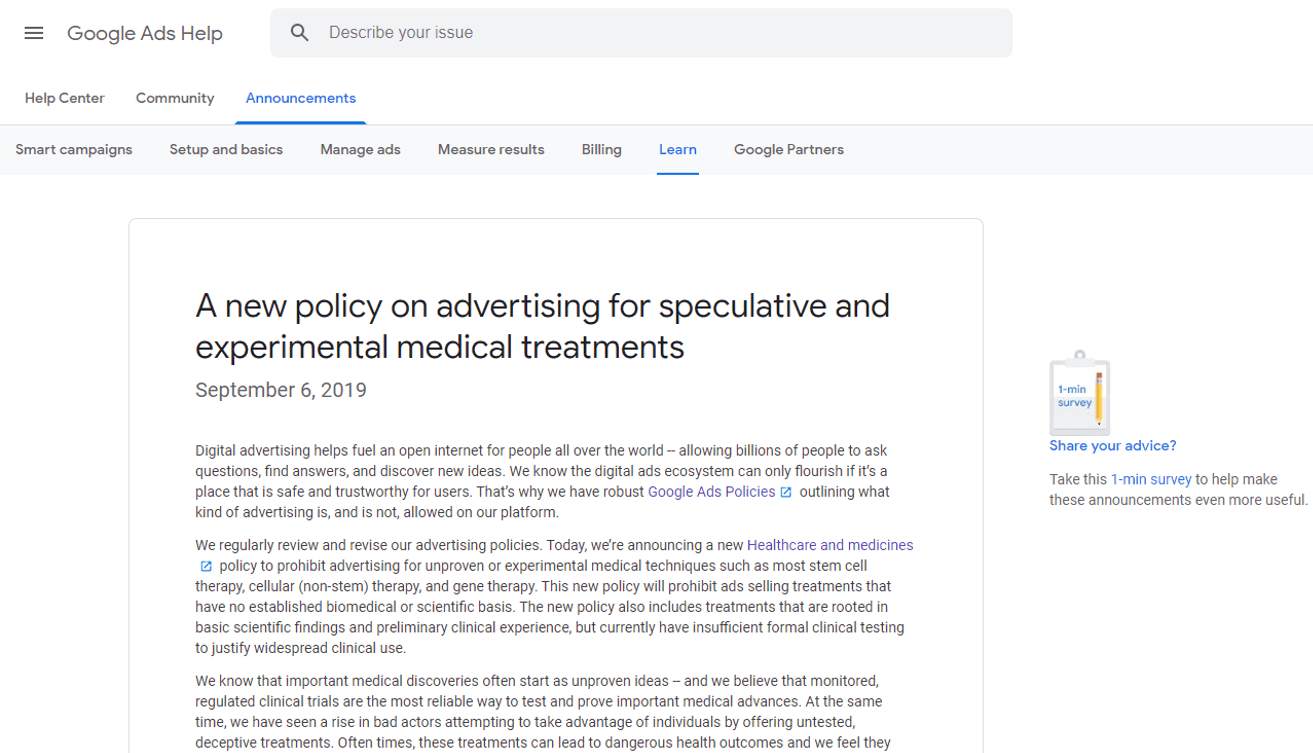
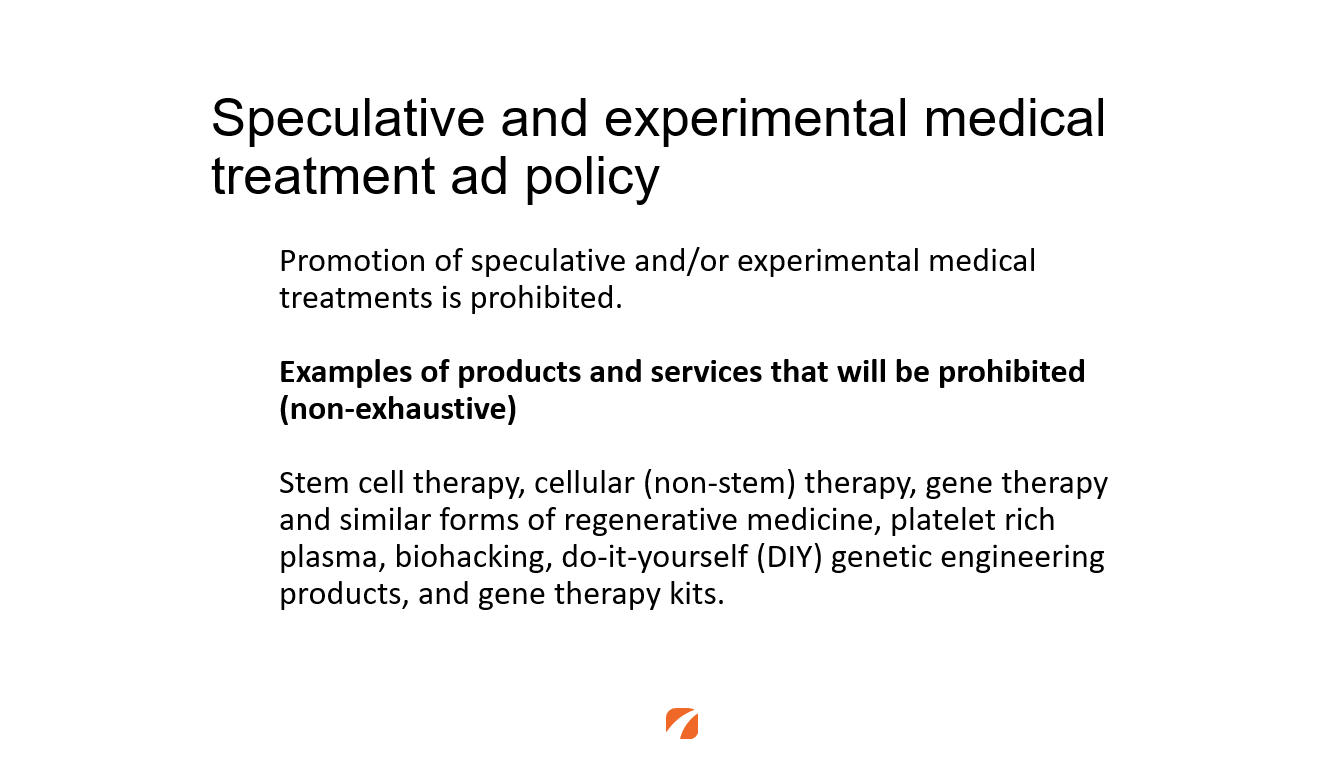
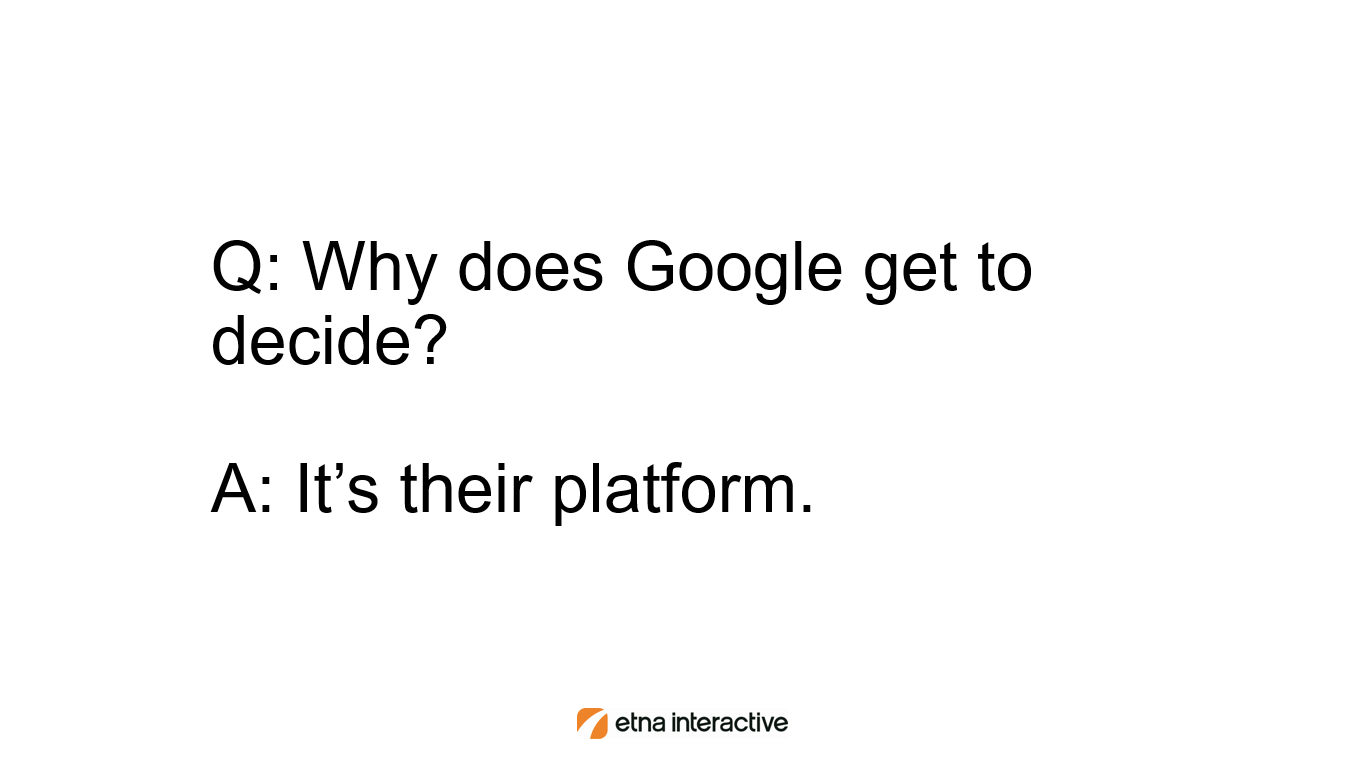
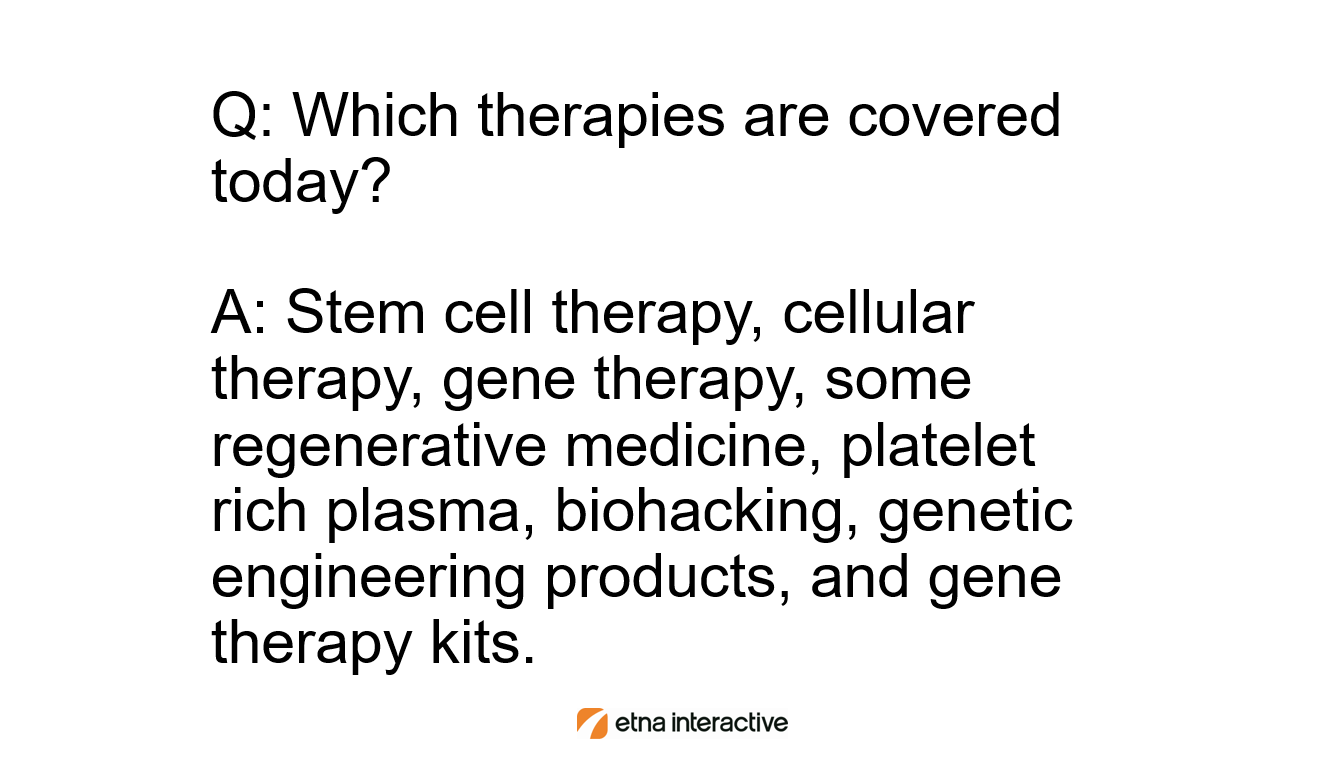
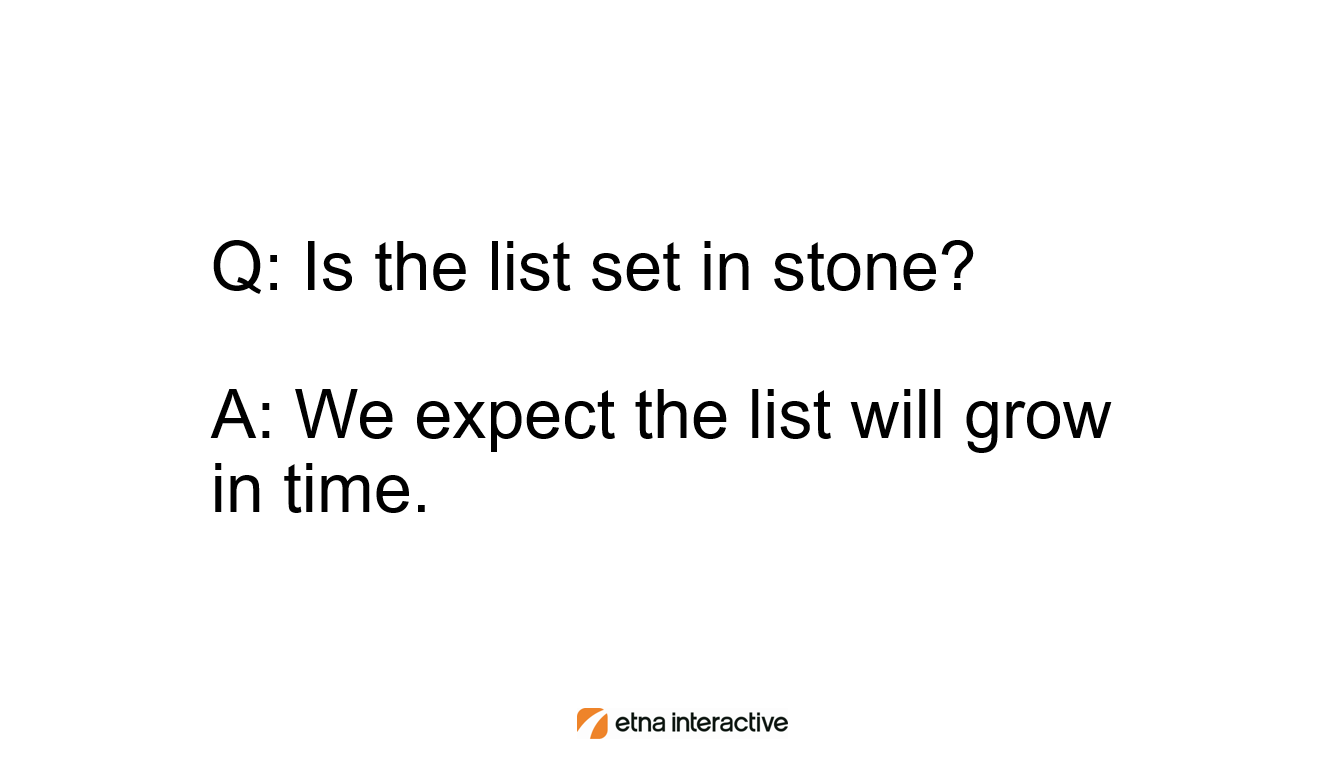
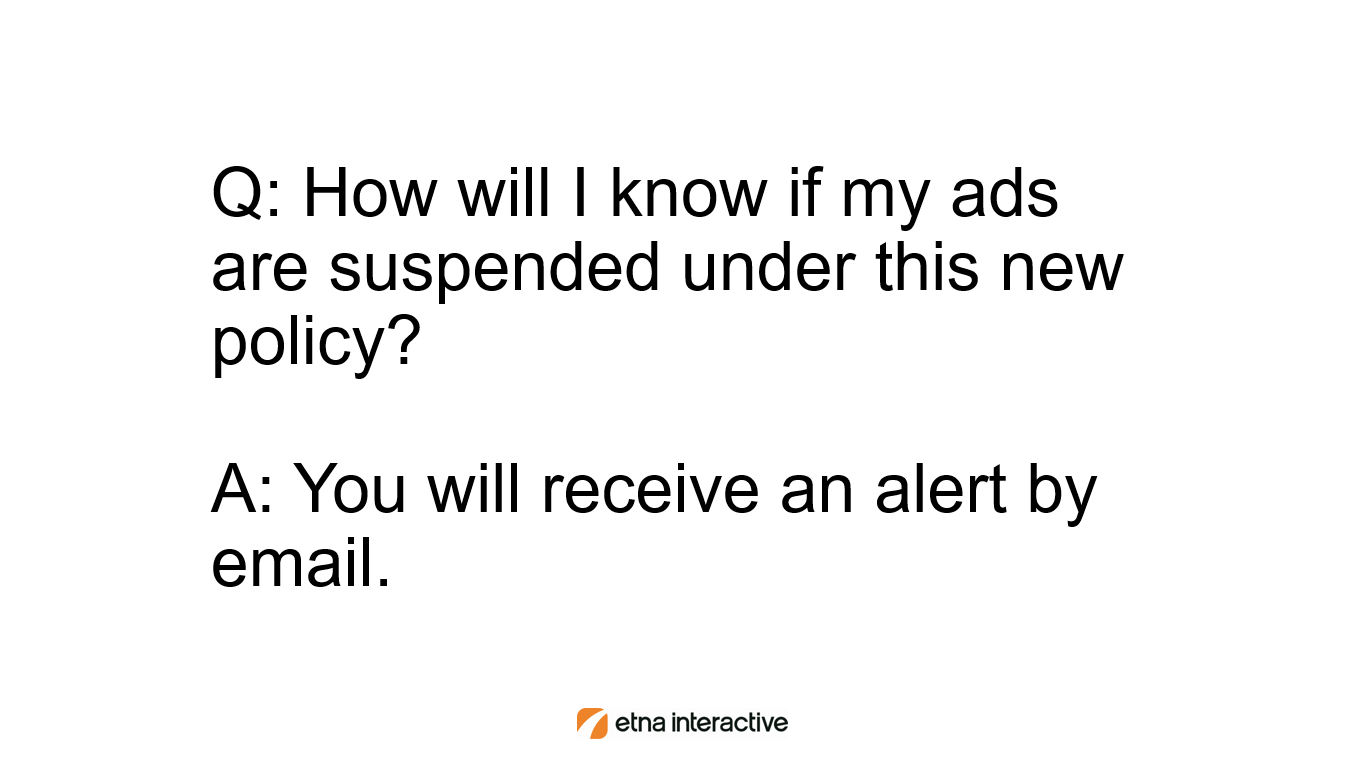

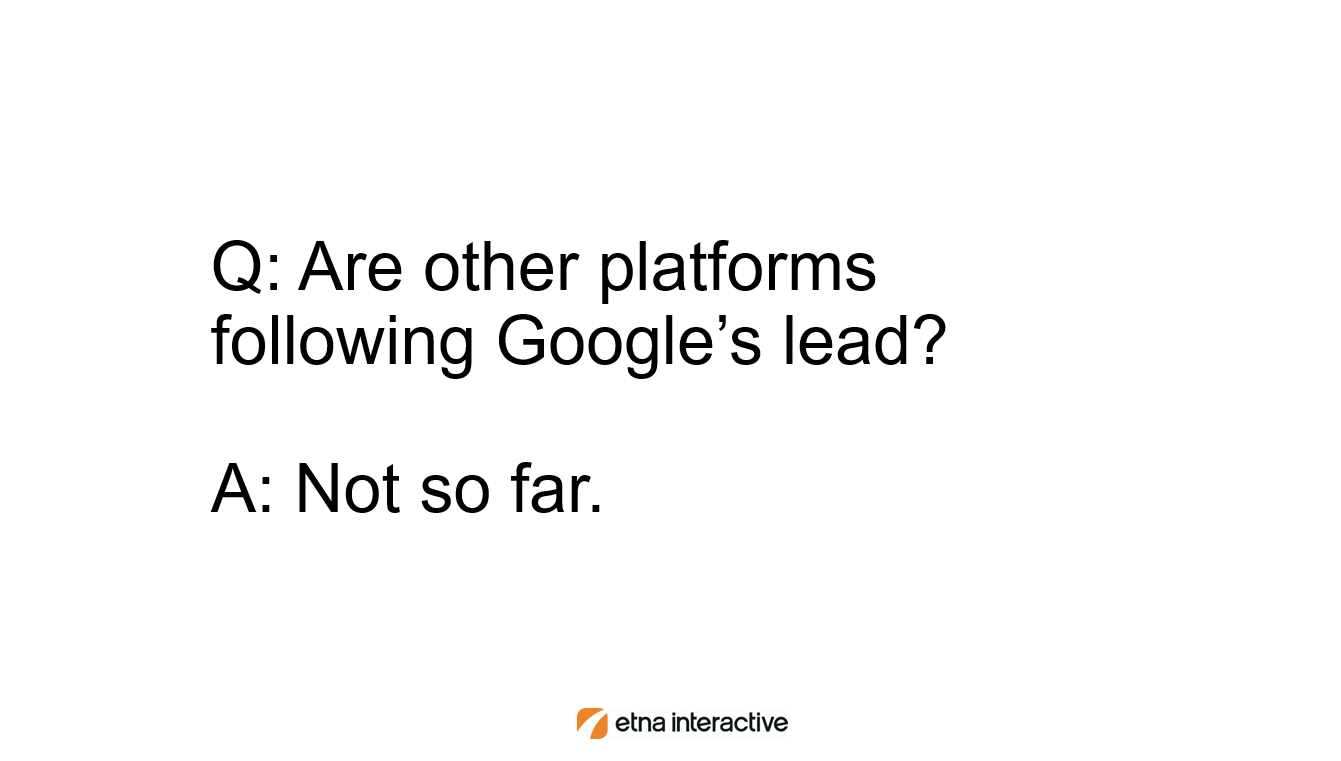
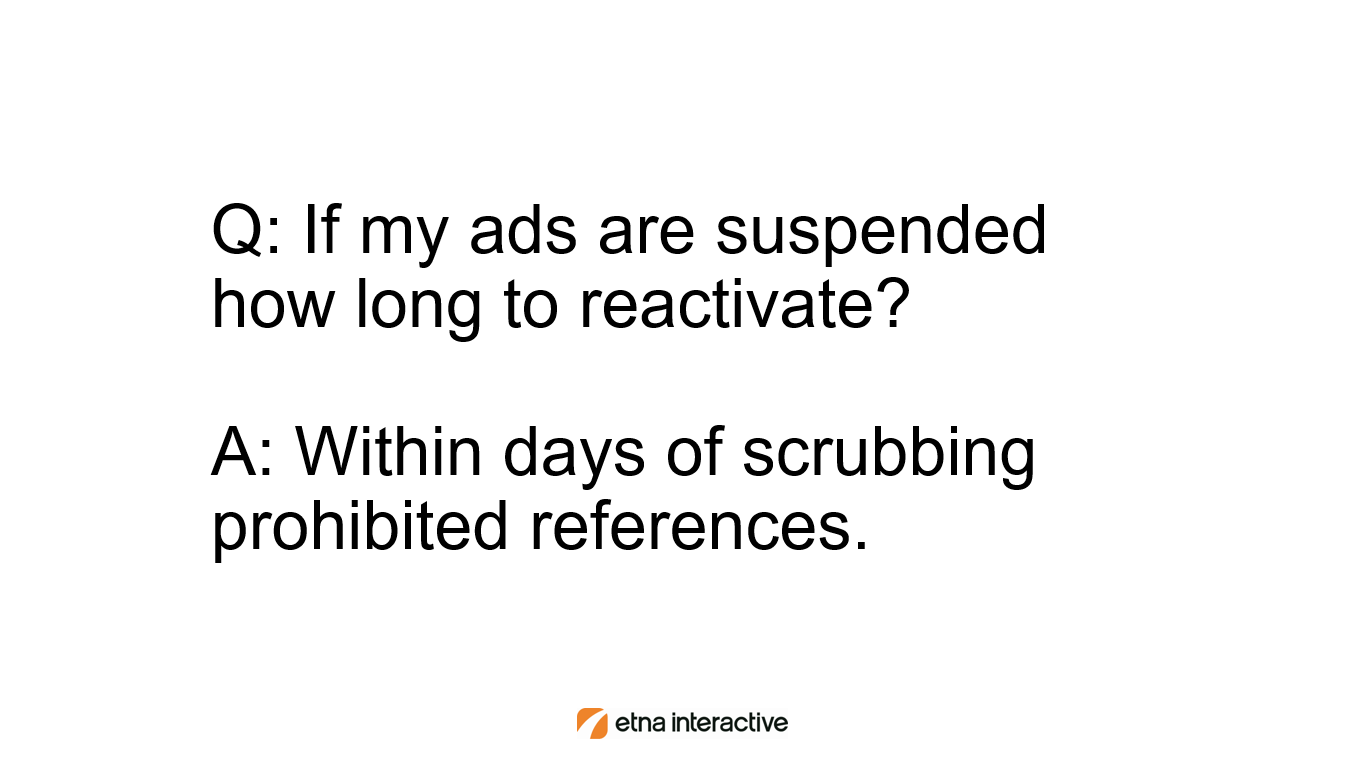
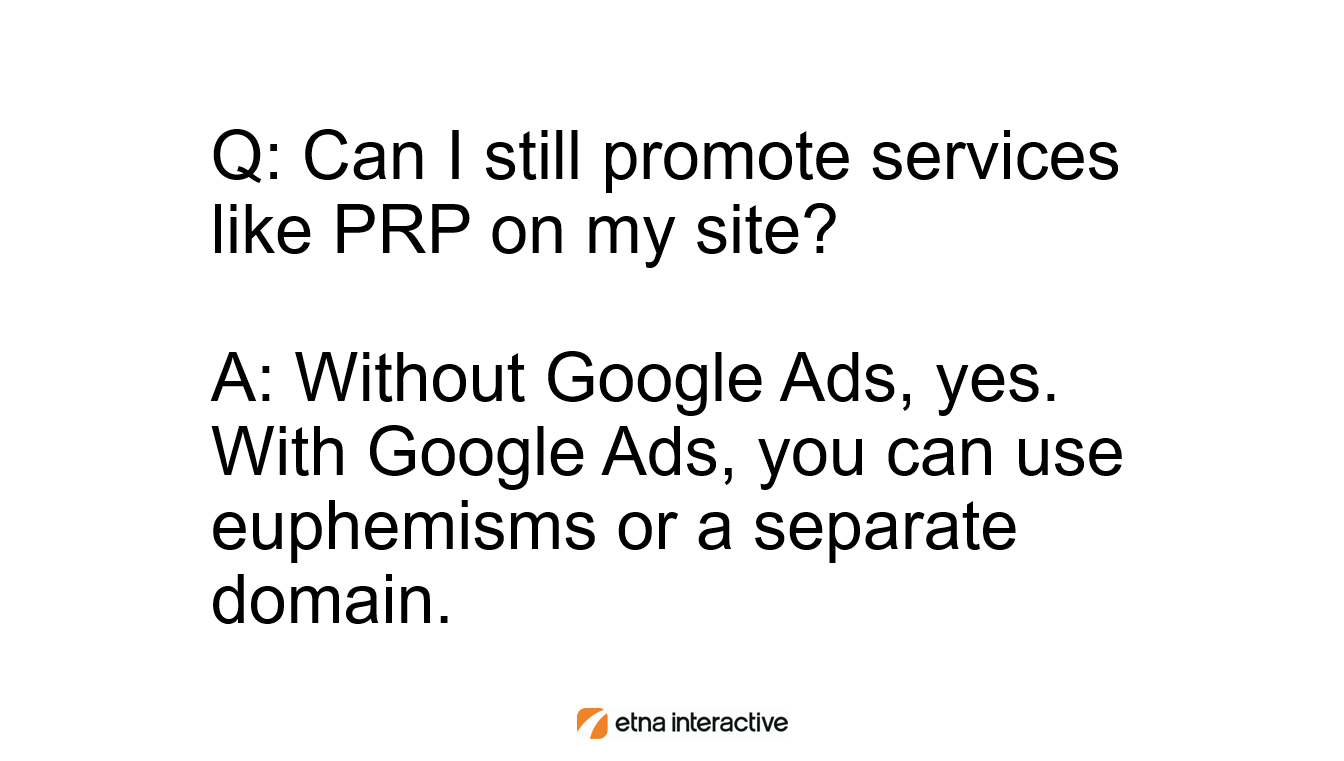
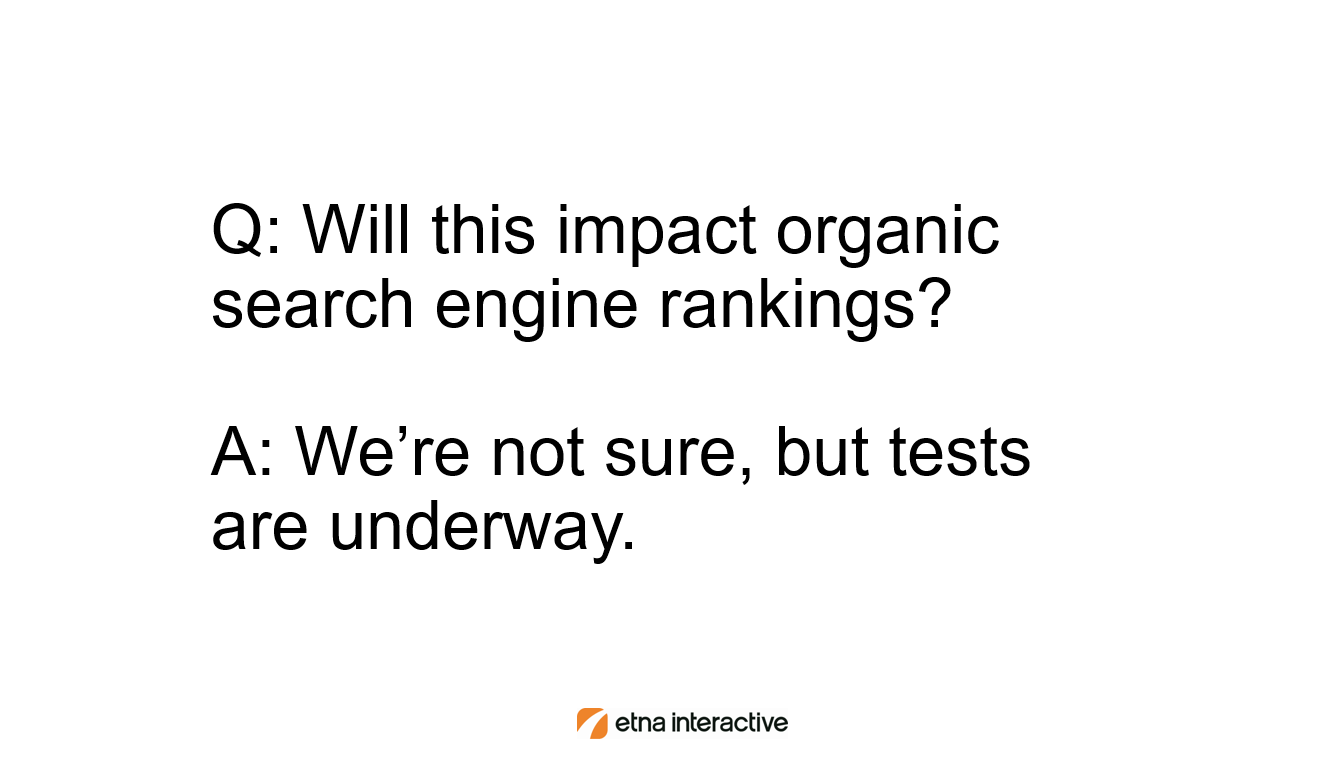
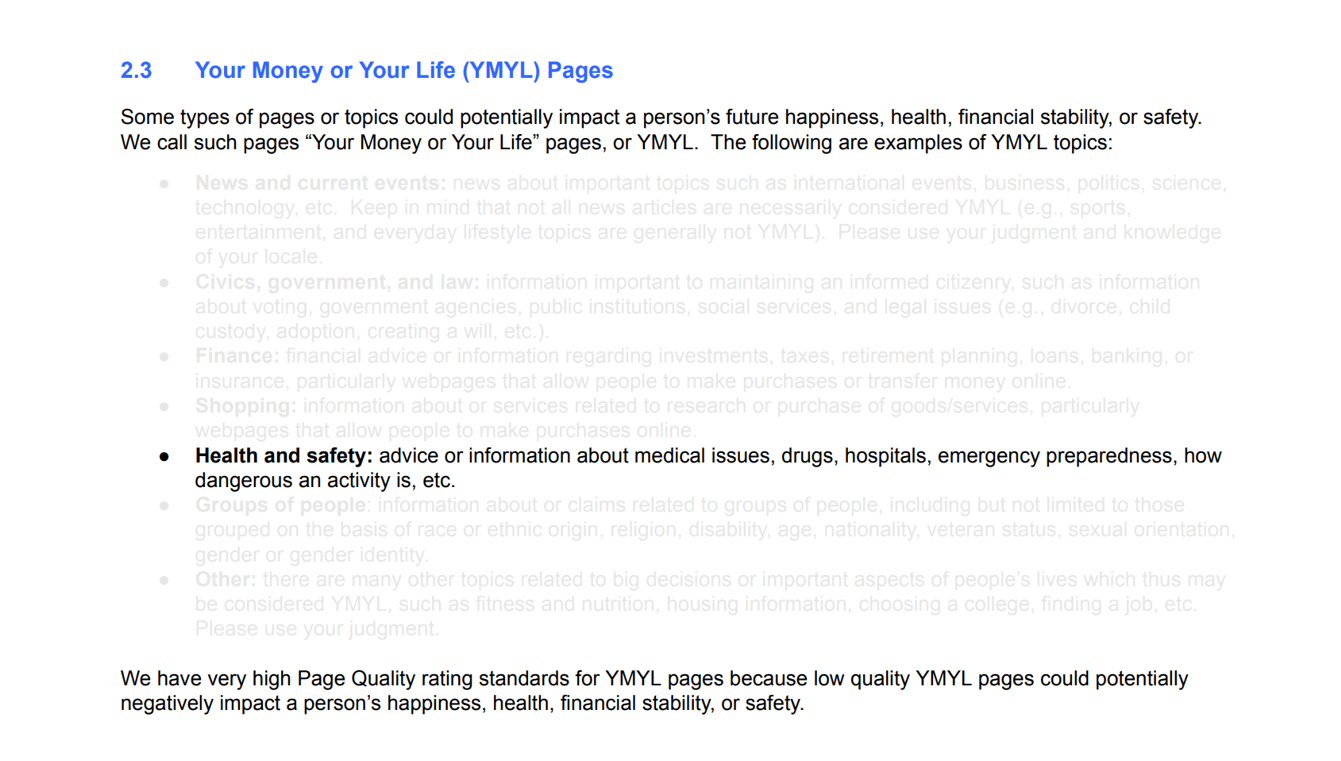
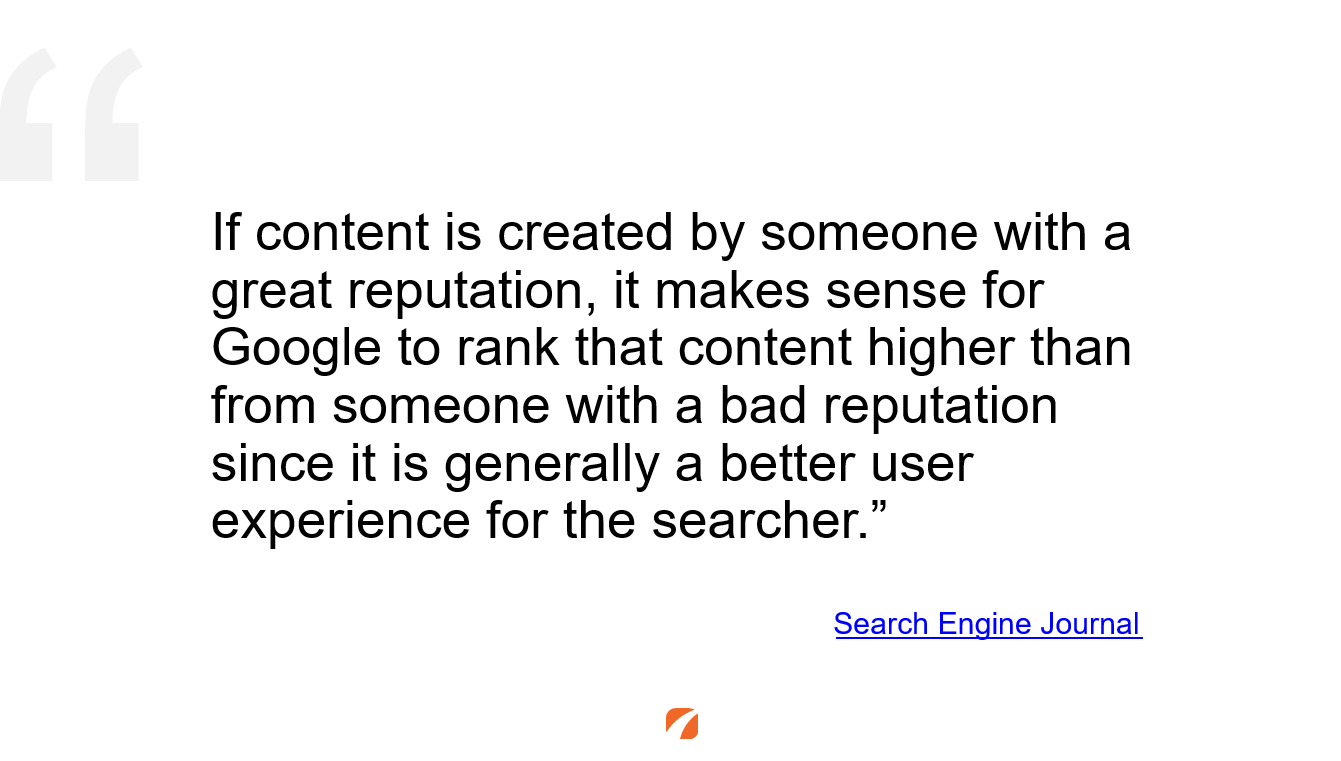

Leave a Comment